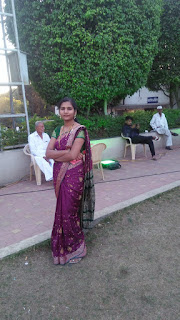Deconstruction’
It seeks to expose the problematic nature of ‘centered’ discourses.
Derrida uses the term différance to denote neither a word nor a concept but rather the gap that is the difference between signifiers and the movement that is the deferral of the hypothetical signified. Presence is never present but always deferred. Différance, therefore, is the condition of possibility for experiencing the absence of the presence of the signified. Différance is the freeplay of signifiers that creates a trace of the other which is n(ever) absent. The experience that there is too much, more than one can say, is not due, argues Derrida, to the empirical impossibility of knowing language in its totality. Language excludes
totalization because it is a field of play (play of signifiers in differential relations), of différance that permits the lack that creates the movement of supplementarity--the move to supplement a lack on the part of the signifying (and thus a lack "perceived" in the elusive/illusive signified). As Murfin notes in commenting on Derrida’s critique of Rousseau’s privileging of speech over writing, “writing is a supplement to speech that is at the same time necessary. Barbara Johnson, sounding like Derrida, puts it this way: ‘Recourse to writing . . . is necessary to recapture a presence whose lack has not been preceded by any fullness’ (Derrida, Dissemination xii). Thus, Derrida shows that one strand of Rousseau’s discourse made writing seem a secondary, even treacherous supplement, while another made it seem necessary to communication”Derrida uses the term différance to denote neither a word nor a concept but rather the gap that is the difference between signifiers and the movement that is the deferral of the hypothetical signified. Presence is never present but always deferred. Différance, therefore, is the condition of possibility for experiencing the absence of the presence of the signified. Différance is the freeplay of signifiers that creates a trace of the other which is n(ever) absent. The experience that there is too much, more than one can say, is not due, argues Derrida, to the empirical impossibility of knowing language in its totality. Language excludes






No comments:
Post a Comment